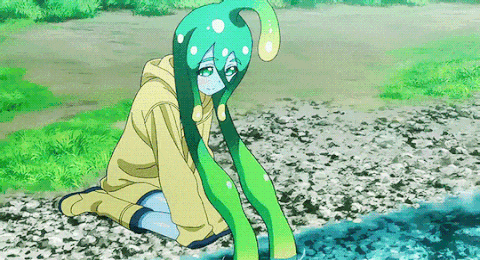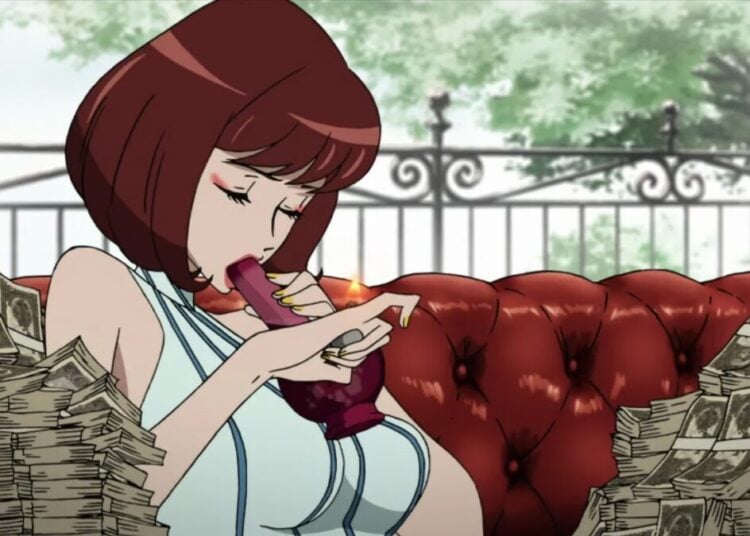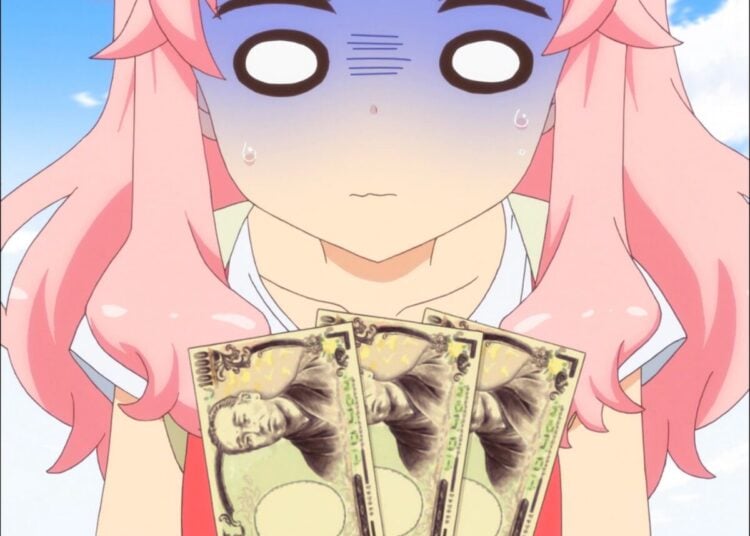Economic history was made yesterday as Japan’s central bank raised interest rates for the first time since 2007, ending its long policy of negative-to-zero interest rates. Let’s look at what this means for the Japanese economy and the anime industry!
Valentine’s Day is coming, and J-List is showing how much we love our customers with a big sale! Until February 15, get 15% off all in-stock products shipping from Japan automatically. Time to stock up on awesome hentai products, ero lotion, and our world-famous “dolphin polishers” from Japan! Start browsing here.
Japan Raises Interest Rates. What Does This Mean For the Japanese Economy?
On Tuesday, Japanese central bank governor Kazuo Ueda announced the change, which brought Japanese short-term interest rates from -0.1% to 0.1%. This interest rate might seem laughably low compared to the US, where 10-year treasuries trade at 4.3% and 30-year mortgage rates are above 7%. But it’s an important change in the context of Japan, which has kept interest rates at or below 0% since 1998.
What it really means is that Japan believes its economic future is bright enough to withstand the higher rates, and that wages will rise enough to offset the rate increase. The announcement creates some anxiety among Japanese homeowners, who will see a small uptick in their floating-rate mortgage payments. But the government clearly believes this is manageable.
What Happened When Japan’s Asset Bubble Popped?
Imagine if, in response to the 2007–2008 Great Financial Crisis, Western governments did nothing to address the problem, watching the collapse of banks and other assets for years before beginning to enact any new policies. That’s basically what happened to Japan when its huge asset bubble popped in 1991, and the Japanese economy suffered two “lost decades” with basically zero economic growth as a result.
How would you feel if you invested $10,000 in the Japanese stock market in 1989, but after 35 years, it was only worth…$10,001? Or imagine you bought a condo in Tokyo the same year, expecting it to go up in value, but instead, it crashed 75% and didn’t recover for three decades? That’s the economic reality the Japanese have had to deal with over the past few decades.
When I first arrived in Japan in October of 1991, I was impressed with how vibrant the economy felt. I’ll never forget visiting an ice cream shop inside Tokyo Disneyland and seeing nine employees, all trying to look busy as they wiped down the counters repeatedly while me and one other customer made our order. Japan must be an economic powerhouse if it can hire more employees than it clearly needs for an ice cream shop!
Little did I know I had arrived just at the peak of Japan’s bubble bursting, which unfolded like a very slow train wreck. By the mid-1990s, unemployment spiked up to 5% (high for Japan), and wage growth fell to zero. Difficult economic times in Japan were actually good for J-List, as they forced Japanese companies like Nitroplus to be open to working with us to create a market for their visual novels outside of Japan. A lot of doors opened for us as Japanese companies were forced out of their economic comfort zones.
Can Inflation Be Good For The Japanese Economy?
One of the benefits of arriving in Japan just as the economy was entering a long night was paying 1991 prices for 25 years. This is because having zero economic growth means zero inflation. Of course, the downside is that if you’re working at a Japanese company being paid in yen, you have to endure earning a 1991 salary, too. Around 2015, prices finally started to tick up. This caused Japanese consumers to freak out, despite this being a normal function of economic growth.
Naturally, Japan has had to endure more than a little inflation in the aftermath of COVID. Some of this came from the increased demand for goods and services as the economy was turned off and on again. But a lot of the inflation has come from the weak yen. This was caused by Japanese pension funds buying US treasuries for their much higher yields. And also why your anime and naughty products from Japan have been getting more affordable, but iPhones and food imported from abroad got more expensive for Japanese consumers. If rates rise further in Japan, this trend might reverse.
Japan Has Given Up on Its Elderly
The nation of Japan is the greyest country in the world, with 30% of the population over the age of 65 and 10% older than 80. Japan is a wonderful country that’s dedicated to providing excellent care for its elderly. It offers an affordable national healthcare system and free healthcare to everyone over the age of 75. However, a few recent policies have shown me that the government is looking beyond the current challenges.
First is the Qualified Invoicing System. This is a new tax change that basically takes a 10% consumption tax bite out of all purchases that aren’t between registered businesses. While goods have always had this tax built into their prices, going forward all services will be subject to the tax unless they’re charged between registered businesses. These changes harm animators and voice actors, who often work on a contract basis. But the new rules are also a clear sign to Japan’s millions of elderly running inefficient shops (like the liquor store my wife’s parents operate) that it’s finally time to close.
Then are the changes Japan made to its NISA retirement investing system, allowing workers to sock away around US$24,000 in a special account each year and enjoy this money tax-free in their silver years. This system is similar to ISA in the UK or Roth IRAs in the US. The new NISA is actually a very sweet deal for younger savers or investors. But it’s also the Japanese government essentially saying to its young workers: don’t expect the national pension system to be there for you in future decades; see to your own future prospects instead by investing in index funds.
Thanks for reading this blog post about Japan raising interest rates and the future of the Japanese economy. Got any comments about this? Post them below!
Let’s Chat
You made it to the end of this post! Thank you! As a token of our appreciation, enjoy an extra 5% off your next order when you use the code BLOG at checkout. Also, don’t forget to follow J-List on all our platforms!
- Twitter / X, where Peter posts anime booba for you
- Bluesky, where we post several times a day
- Facebook, where we used to share memes and discuss anime
- Discord, if you want to chat with other J-List customers of culture

Valentine’s Day is coming, and J-List is showing how much we love our customers with a big sale! Until February 15, get 15% off all in-stock products shipping from Japan automatically. Time to stock up on awesome hentai products, ero lotion, and our world-famous “dolphin polishers” from Japan! Start browsing here.



















